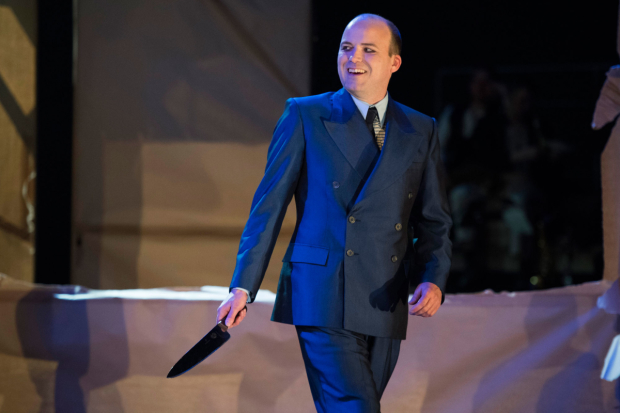Matt Trueman: The roar of current affairs creeps into the plays we watch
Matt Trueman on how recent political events affect our interpretation of theatre

© Richard H Smith
What a week, eh? If you’re anything like me, you will have spent it staring, open-mouthed, at your runaway train of a Twitter feed, anxiously refreshing the Guardian’s live blog and hunting down political panel shows – Newsnight, Question Time, even (god) The Daily Politics – on iPlayer. It wasn’t just a matter of trying to keep up. It was about trying to make sense of it all. Everywhere you went, every other conversation seemed to be about Brexit.
Against such uncertainty, as current affairs began to seem like a rip tide, going to the theatre felt a bit ludicrous. With the situation outside pressing and uncertain, history in the making, reality seemed far more important that any fiction onstage. Come the interval, a whole new shadow cabinet could have resigned. By curtain down, the currency might have collapsed. Hard to concentrate in those circumstances. Even when you carved out a measure of attention, however, every play seemed to be about Brexit.
As current affairs began to seem like a rip tide, going to the theatre felt a bit ludicrous
The roar of current affairs changes theatre. If you can’t get events out of your head, they creep into the play that you’re watching. We take the news into the theatre with us. Watching Faith Healer last Tuesday, it was impossible not to see shades of Jeremy Corbyn in Stephen Dillane‘s Frank with his red tie and shabby brown suit. You turn the idea over: the Labour leader as a onetime miracle worker whose powers have deserted him. He has the same quiet magnetism, the same good faith and the same sadness in his eyes. The next night, Melissa Bubnic‘s banking satire Boys Will Be Boys suddenly seemed too easy a blame-game. A fortnight earlier, it wouldn’t have.
Theatre soaks up the situation outside its doors. Other art forms don’t, not in the same way. We might apply Game of Thrones analogies to politics – and, boy, did we run with that last week, like Ramsay Bolton legging it away from Jon Snow – but the truth is we rarely think the other way around. You don’t watch Roose Bolton [SPOILER ALERT] stab Rob Stark through the heart and think, ‘Ooh, how like Michael Gove.’ Whereas, watching Richard III, you inevitably see today’s political leaders. He’s Putin. He’s Trump. He might even be Nigel Farage.(Interestingly, I doubt we’d ever refer to any of them as a kind of Richard III.)
Rory Kinnear's Macheath is now considering a bid to lead the Tory party
It’s a timing thing: film exists in the past, so we know any similarities with present-day politics are entirely coincidental. Theatre, meanwhile, is remade again and again, night after night, in the here and now. Its artists are aware of and attuned to the contemporary parallels and they play them out in public. As such, theatre cannot but be political.
I’m told Rory Kinnear has spent the past week ad-libbing his way through The Threepenny Opera at the National. His Macheath is now, I hear, considering a bid to lead the Tory party, given how much he loves a good backstabbing.
The referendum must have been a defibrillator for that show. A month ago, it seemed flat and fantastical; Brecht as a good night out, but lacking its political fire. Today, it must feel absolutely vital – even outright angry. "If you give the despairing a mission," intones Nicholas Holder’s Mr Peachum, "they will do anything you want them to do." Post-Brexit, those words land very, very differently. On press night, he seemed a cackling Marvel villain in his kitten heels, pinstripe suit and bob. Now, I’ll bet Peachum seems all too plausible. It really has been that sort of a week…












